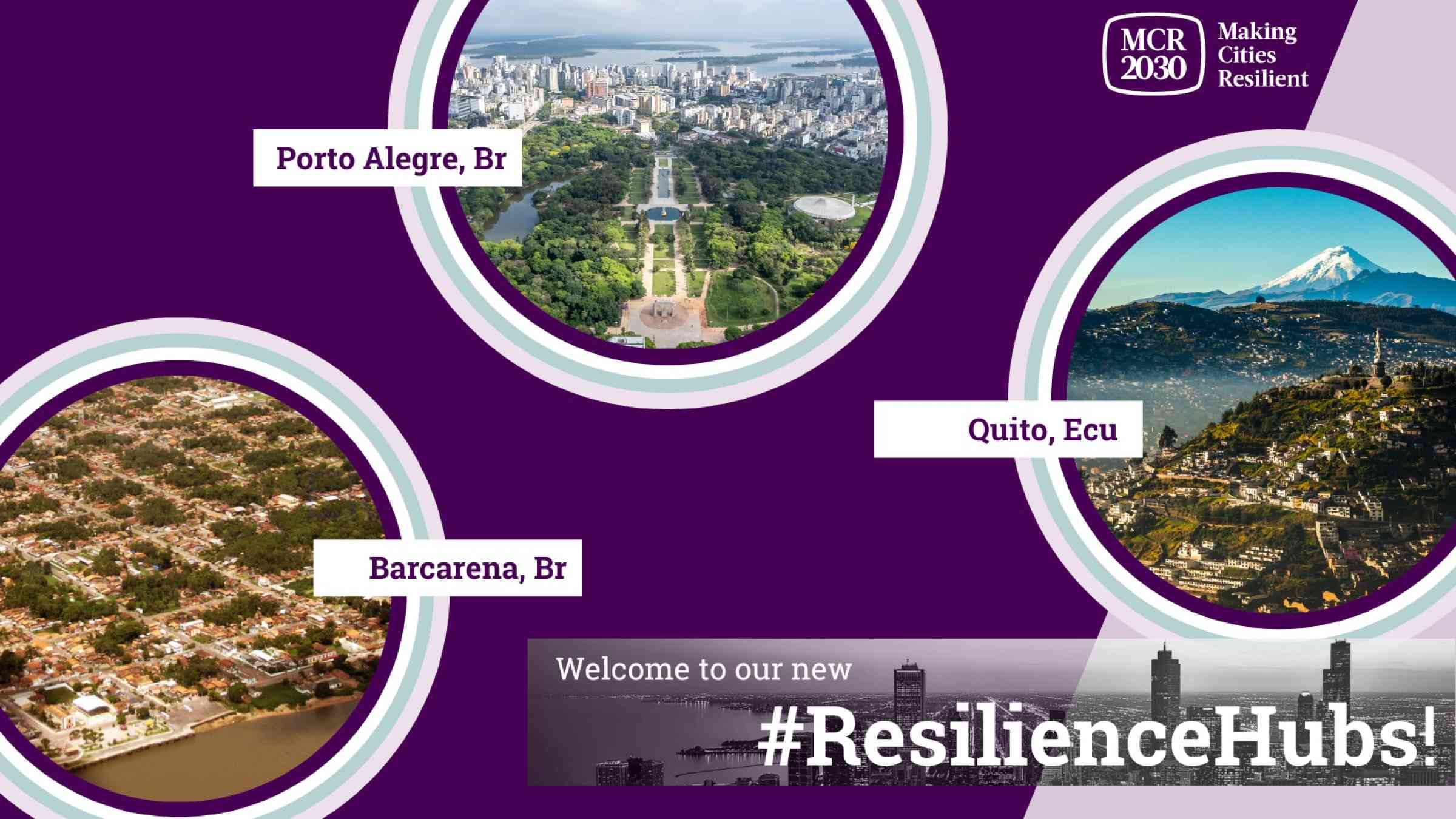MCR2030 welcomes three new Resilience Hubs in Latin America

Barcarena and Porto Alegre in Brazil, and Quito in Ecuador, have become the latest Resilience Hubs of the Making Cities Resilient 2030 (MCR2030) initiative. These cities will strengthen MCR2030's mission to drive disaster risk reduction, climate action, and sustainable urban development.
Barcarena is currently developing institutional capacities for small and medium-sized cities in the pan-Amazon region. The city actively promotes knowledge management and seeks to drive concrete actions to reduce disaster risk and promote sustainable urban development. Barcarena joined MCR2030 in November 2021, embarking on its resilience journey from Stage A of the initiative. Since then, it has implemented MCR2030's roadmap actions for resilience, progressing to Stages B and C through the development of its local risk reduction and resilience plan, with technical assistance from UNDRR and ICLEI.
Porto Alegre focuses on strengthening metropolitan governance of risks and resilience in its MCR2030 action plan. This Resilience Hub is a trailblazer in Brazil for resilience strategy development and has established a solid foundation of actions for building more resilient communities. Porto Alegre's extensive experience in planning and implementing resilience actions, stemming from its work with the Rockefeller Foundation's 100 Resilient Cities, aligns with committed political leadership in risk reduction. The city also stands out for its successful collaboration with several members of MCR2030's Regional Coordination Committee in the Americas and the Caribbean.
Quito aims to enhance local knowledge and capacities for inclusive risk management in Ecuador. It tirelessly works to promote a culture of prevention and resilience in its territory, strengthening its response capabilities in the face of climate challenges and adversities. Quito already boasts a robust governance structure and a strong international support network, including partnerships with various members of MCR2030's Regional Coordination Committee. As a result, Quito's best practices position it as a regional exemplar in climate adaptation, sustainable development, and resilience promotion.
These three new Resilience Hubs will support our global network in sharing knowledge and best practices among MCR2030 cities.

